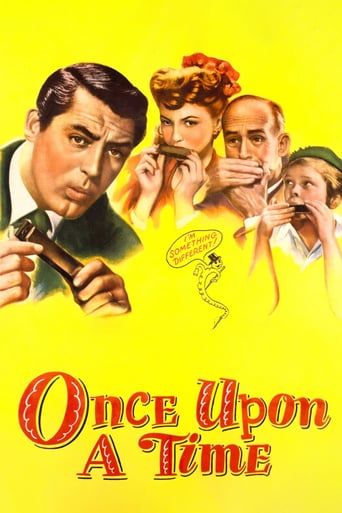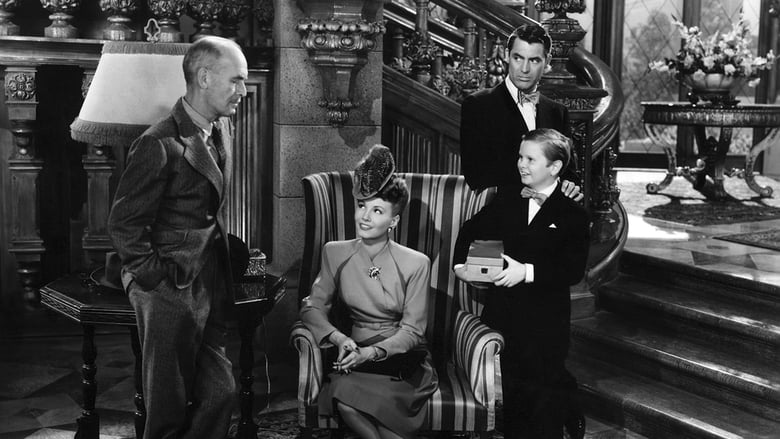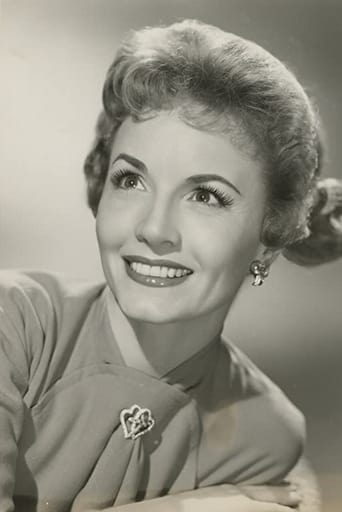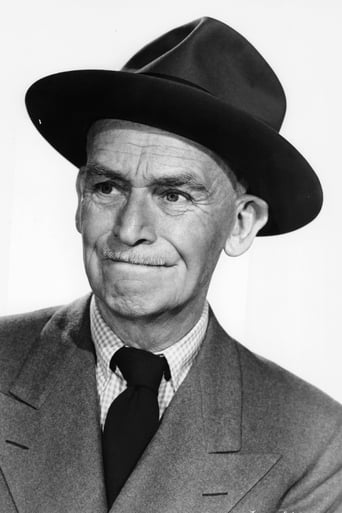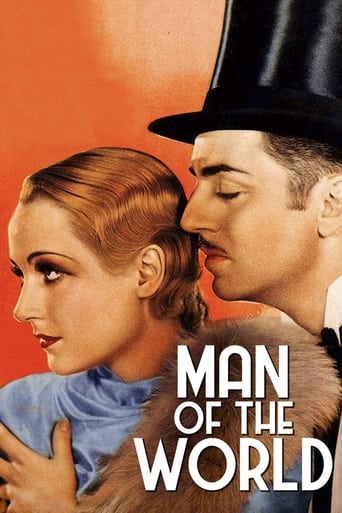Once Upon a Time (1944)
Broadway producer Jerry Flynn is anxious to recapture the magic and reclaim the crowds after a set of costly flops. Outside his theater one night, Flynn meets a young boy who just might save the day. Inside a small box the boy shows Flynn his pride and joy: a caterpillar named Curly that dances to Yes Sir, That's My Baby. Word quickly spreads about the amazingly talented hoofer, and the caterpillar becomes a symbol of hope for wartime America. Soon, offers are pouring in to capitalize on this sensational insect.
Watch Trailer
Cast


Similar titles
Reviews
How sad is this?
This is one of the few movies I've ever seen where the whole audience broke into spontaneous, loud applause a third of the way in.
Great movie. Not sure what people expected but I found it highly entertaining.
Watching it is like watching the spectacle of a class clown at their best: you laugh at their jokes, instigate their defiance, and "ooooh" when they get in trouble.
"Once Upon a Time" is billed as a comedy and fantasy, but some of the dramatic parts are what give this film a boost. That's because the fantasy is played out so silly. Curly, the dancing caterpillar is kept in a box that people must view through a hole at the end. Why not an open lid so several people can see the worm wiggle on its end? Hollywood had done all kinds of things with special effects, trick photography, etc. well before that. A little insertion of animation at that point would have worked. Something like that would have given the fantasy aspect of this film a real boost. Of course, it would have required some script changes since the skeptical reporters and others would have seen Curly do the curls to Pinky's playing of "Yes Sir, That's My Baby" on his harmonica. But, as it is, this film is quite silly and otherwise not that good. To compensate for a poor plot otherwise, the film gets a boost from Cary Grant's performance. Moviegoers since the last half of the 20th century have been so used to Grant's comedy and romance films, that many may not realize his acting abilities. But here he shows some of that. In a couple of scenes, Grant shmows anger in his face. At other times, he appears quite mean. Pinky says, at one point, "You're a mean man, Mr. Flynn."Besides Grant's role as Jerry Flynn, young Ted Donaldson does a tremendous job as Arthur "Pinky" Thompson. A romance between Flynn and Pinky's sister, Jeannie (played by Janet Blair) is never more than lukewarm. The only other decent performance is by James Gleason as The Moke. The rest of the supporting cast are mostly unknowns. The screenplay just isn't very good for this film. There's so little witty or funny dialog. Some reviewers alluded to this film being a popular hit. The only place I could find anything about its box office was on Ultimate Movie Rankings, which showed it in 128th place among 1944 movies for box office. And that was at $1.1 million. So, if it made money at all, it couldn't have been much. The only funny lines occur between two women (unidentified) working at a dance room. They have heard or read the news about Curly. The first woman says, "A dancing caterpillar? Pooh." The second woman says, "Well, why not? He can't be any worse than some of the worms that drag me around the dance floor."
I was going to rate this film four stars but I gave it five stars because it was only 90 minutes long. That's about the only good thing I have to say about it.Cary Grant must have owed someone a favor because I have no idea why he made this horrible movie. The plot was beyond silly, it was insanely predictable and the movie seemed to go on forever.Cary Grant, as always, sold the hell out of his performance as Jerry Flynn. He was the only reason I kept watching this movie. If anyone else had been the star, I would have turned the movie off.This story would probably have made a cute short film (15 minutes or less), but there was just not enough plot to fill 90 minutes.I'm a huge fan of Cary Grant, so I'm glad I saw this movie. However, I don't care to ever watch it again.
The silly story of a down on his luck Broadway producer and his obsession for a dancing caterpillar is greatly enhanced by the approach of director Alexander Hall and screenwriter Irving Fineman. Hall and Fineman helm the fantasy in a surprisingly straightforward, realistic manner that manages to avoid camp with just the right touch of fantastical whimsy. Further credibility is given by the strong performances of Cary Grant and James Gleason, although Janet Blair and William Demarest are forgettable in one-dimensional roles. Best of all is 11 year old child actor Ted Donaldson, who easily transcends the film's far-fetched premise and almost single-handedly makes one believe a caterpillar can dance!
This is not a great film by any stretch. But it has it has it's interesting points. A minor comedy by Cary Grant, it came out just before his greatest performance as Ernie Mott in "None But The Lonely Heart". Ernie was the last of a series of heels or near heels that Grant played in serious films from "Suspicion" to "Mr. Lucky" to "Lonely Heart", all of which the studio system and the cult of movie star image crippled from being as good as they might have been. Grant just could not play a villain. Even when he was the unscrupulous Walter Burns in "His Gal Friday", the editor's role was subtly changed by showing that when he wasn't seeking newspaper scoops at everyone else's expense, Walter actually wanted to rid his city (Chicago) of a corrupt Mayor and his gang of relatives. Keep in mind that "His Gal Friday" was a comedy, not a tragic story like "None But The Lonely Heart" or a murder mystery like "Suspicion".ONCE UPON A TIME had been a radio play by Norman Corwin, and had been very successful at the time. The radio play was a fantasy about a little boy who has a pet caterpillar that will dance to the boy playing "Yes Sir, That's My Baby". He meets a theatrical producer who sees "the big picture" about showing the caterpillar to the public. The story line follows how this glitz campaign wrecks the producer's friendship with the boy, until the caterpillar vanishes and they find their relationship again in their concern about the missing pet.It sounds hokey, and is a little, but the story works. Fred Allen had played the ambitious producer in the radio show, and his perfect comic delivery hit the targets of the story. But for the film Allen (despite his wonderful success in "It's In The Bag") was not glamorous enough to carry the movie. Instead it was given to Grant. And here, now in a comedy, the same problem of the image and the desire to stretch as a film performer was fought again. Jerry Flynn is an unscrupulous producer who dreams of having his own theater for his own productions. He has gotten over his head in debt, and he may lose the theater he has a stake in as a result. But he is generally untrusted - and with reason. He will sell anyone for an advantage in the entertainment field. His most persistent critic is the news columnist Brandt (William Demerest) who has seen his shenanigans for years and knows he's an unscrupulous creep. And behaves that way for most of the film - once he discovers the caterpillar's talent to dance. He gives it the full treatment, much to the dismay of the boy's sister Jeannie (Janet Blair) and the growing disillusion of the boy "Pinkie" (Ted Donaldson). Brandt keeps sniping, suspecting everything that Flynn is up to - and finally (when Flynn seems to have beaten him) Brandt shows his moral superiority. Demerest says, "I'm only sorry that such a wonderful thing has to be controlled by you!" It actually does summarize the unscrupulousness of the character.If the original play had not been comic, and had not allowed for Flynn's moral regeneration I doubt if Grant's agent would have agreed to allow him to do it. Up to the middle of the film one dislikes Flynn's activities, especially as they hurt Pinkie and his sister (who, in the course of the film, falls for Flynn). It being a comedy there are moments when Flynn errs. The scene where he tells his aide "the Moke" (James Gleason) to let the telephone ring, expecting it is a call from Walt Disney about using the caterpillar is amusing - when it turns out he's wrong. But the audience wants to be wrong. His eventual realization that there is more to life than success in business or art helps make the character palatable, but it does not ring as true as if Flynn had remained the user/huckster he was to the end.The performances are fine (especially Demerest). But it is minor Grant, and it is ironic that it came just before he came closest to his acting peak.

